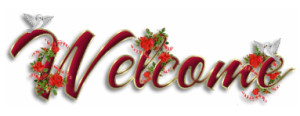 Are you expecting to have guests staying at your home at any time during the holiday season?
Are you expecting to have guests staying at your home at any time during the holiday season?
If so, it’s possible that one or more of them might ask to borrow your computer to check their email, get on Facebook, or do whatever it is they enjoy doing online.
There’s really nothing wrong with allowing a visitor to use your computer, but there are a few things you might want to do before your guests arrive:
1 – If you haven’t already done so, enable the Guest Account on your computer (every modern operating system has one). A Guest Account will prevent your guests from doing anything really dangerous with your computer system.
To find out how to enable the Guest Account on your system, simply Google the words enable guest account [operating system] (replace operating system with Windows 8.1, Windows 10, OS X, etc.).
2 – Create a System Image Backup of your PC’s hard drive just in case your guest accidentally causes some serious issues with your computer.
Having a recent backup on hand will make it easy to get things back to the way they were before your guest(s) arrived should something go wrong.
Click here for instructions for creating a System Image backup in Windows 7, Windows 8.1 and Windows 10.
3 – Remove any stored passwords from your web browsers just in case one of your guests does happen to find a way to log into your personal user account.
This post explains how to remove stored passwords, and this one explains why they are a bad idea in the first place.
4 – Remove any notes or scraps of paper from your computer desk that might contain one or more of your passwords.
5 – Make sure you have a quality antivirus program on your PC and ensure that auto-updates are enabled on it. I use and recommend the free version of Avast.
6 – Enable Two-Factor Authentication on each of your online accounts that supports it. That will prevent one of your guests from finding your password and logging into an account without your knowledge or permission (not being accusatory or paranoid here, just cautious).
You’ll find instructions for enabling Two-Factor Authentication on several popular online services right here.
7 – Be prepared to remove any malware that might still find its way onto your system despite your best efforts. After all, not everyone practices safe web browsing and email reading habits.
This is especially important if you decided not to create a backup of your hard drive as I recommended above.
This post explains how to track down and remove any malware that might end up on your computer.
Well, that’s about all there is to keeping your computer safe while it’s being used by your guest(s) during the holidays. Good luck!
Bonus tip: Want to make sure you never miss one of my tips? Click here to join my Rick’s Tech Tips Facebook Group!
If Facebook isn’t your cup of tea, I invite you to sign up for my Rick’s Daily Tips Daily Update Newsletter.
Want to ask Rick a tech question? Click here and send it in!
If you found this post useful, would you mind helping me out by sharing it? Just click one of the handy social media sharing buttons below.